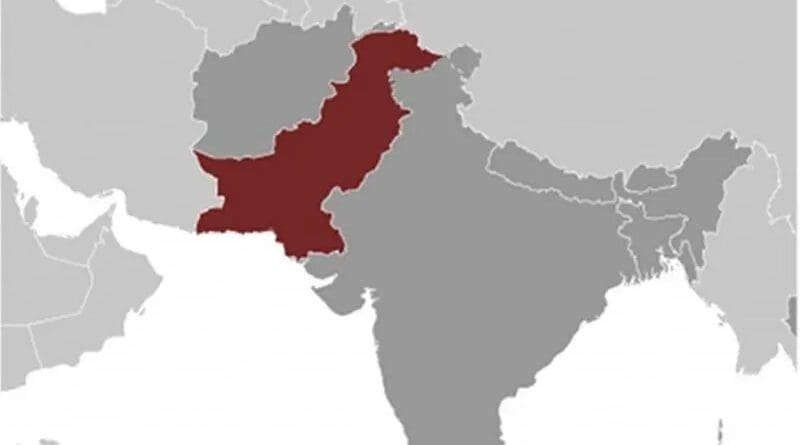Measuring Fragility: A Case Study Of Pakistan – Analysis
By IPCS
By Sadia Tasleem*
The review of a decade of reporting in the Fragile States Index (2007-2016) – previously known as the Failed States Index – issued by the Fund for Peace suggests fairly consistent trends and patterns in Pakistan. The Index shows only a minimal fluctuation in the overall status, ranking and scores attributed to the country. Pakistan has been swinging between the 9th and 14th positions in the “most fragile states” list, with scores ranging from 100.1 to 104.1. Moreover, Pakistan has consistently been placed in the high alert category of states. This year, the country apparently showed slight improvement in its rank by climbing down from 13th rank in 2015 to the 14th rank in 2016. However, Pakistan, placed 12th on the failed states index in 2007 scored better with 100.1 on the table than the present situation.
Discrepancy in ranks and scores raise fundamental questions about measuring fragility and assigning scores and ranks to states. Can fragility be measured with big data? Is the fragility of a state relative to fragility of other states? Or is fragility an intrinsic phenomenon that has its own peculiar course in each country?
Big Data: All That Glitters Is Not Gold
The FSI deserves credit for creating and maintaining a huge database that helps identify fault lines around the world. Undisputedly, there is some value in quantifying social problems – no matter how inadequately – to help policymakers understand the challenges they confront and address the gaps in the policy choices.
Discrepancies are natural in indexes that deal with big data concerning social and political issues. There are limitations both in terms of the electronically available information and its processing. This problem accentuates particularly in states like Pakistan that are still struggling with creating a culture of electronic record keeping.
This gap makes the veracity of reporting debatable. Take for example the case of public services at the provincial level in Pakistan. Khyber Pakhtunkhwa has made notable progress at the grass-root level in fields of education, healthcare and police reforms. But there is only limited data available to evaluate the progress made in the province. The FSI indicators of public service do not seem to take this into account.
On the other hand, Pakistan’s score for human rights has received a marginal but improved rating in 2016 as compared to 2015. It would be interesting to see the data and examine the process of data evaluation to understand how and why the revival of capital punishment, setting up of military courts that can also try non-combatant civilians, introducing stringent anti-terrorism legislations, and unreported episodes of violent excesses in conflict-ridden regions did not impinge upon the human rights rating.
Both cases indicate a perennial problem of underreported achievements and challenges due to the unavailability of data.
There is no gainsaying the fact that Pakistan is mired with challenges of governance and security, be it education, safe drinking water, health care, law and order, refugees, brain drain, IDPs, grievances of smaller provinces, ethnic and sectarian divides, deteriorating political culture, military courts, minority rights, honor killing, terrorism etc. Additionally, Pakistan has some delicate spots that could turn from bad to worse without prior alarm. It would be spurious to claim that the data used to analyse Pakistan is completely faulty. As long as the quantities are conveyed and consumed in the spirit of identifying trends and patterns to indicate problems and challenges, the indexes, despite various discrepancies, can help serve the purpose.
However, the problem emerges with drawing the linkage between ranks, scores, “fragility” and international stability.
‘Fragile’: Anatomy of a Word
In October 2010 – just after the disastrous floods – this author was in Washington, DC, for meetings with people from policy community and think-tanks. Whether or not Pakistan would survive that year’s catastrophic floods was a question that was frequently asked. In Islamabad, there was no conversation about Pakistan falling due to a natural calamity. Unable to relate to the Western mindset, this author contained her desire to recite Ghalib, “Mushkilein mujh per padi itni key aasan ho gayi,” [“So many problems befell me that they became easy”]
Just as it happens to people, some manage to withstand tremendous pressures while others collapse. States too have their unique structures, with varying degrees of elasticity. Their responses to catastrophes, disasters, poor governance or even use of force vary accordingly, setting their own unique threshold for fragility.
Take the case of corruption in Pakistan. It is one of the indicators measured in the FSI to determine the fragility of a state. But it remains to be seen whether corruption itself makes a state fragile, or it is the resistance against corruption that does so. Interestingly, the Panama Papers issue caused a worldwide uproar. In Pakistan, the opposition parties, viewing it as a God-sent opportunity, made their best efforts to de-seat the sitting prime minister and yet failed to mobilise the masses. Ironically, corruption, despite or because of being rampant at all levels of social life – fails to stir people’s emotions in Pakistan. Consequently, many compromises are made, bargains struck, and power negotiated, not only among the elite but also between the masses and the elite. It, thus, keeps the system running.
In such circumstances, can fragility entail the same meaning as it would in countries like Iceland where the public took to streets on the same Panama Papers scandal or states where human rights violations are vehemently challenged?
* Sadia Tasleem
Lecturer, Department of Defence & Strategic Studies, Quaid-i-Azam University, Islamabad

